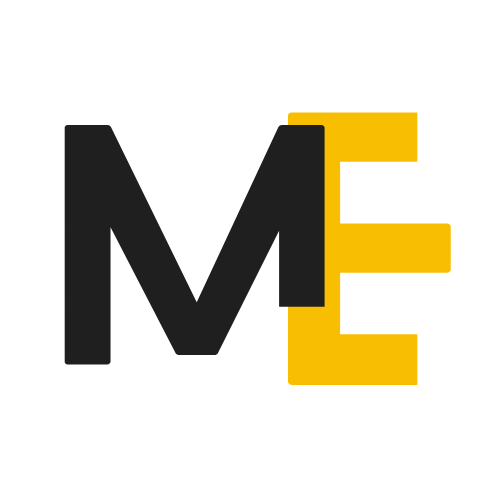Expand Your Candidate Pipeline: Leveraging Black Professional Networks
“We just don’t see any Black candidates apply!”
What’s one of the biggest complaints we hear regarding the lack of Black representation in hiring? “It’s a pipeline problem.” If you find yourself saying this, you’re absolutely right. There likely isn’t a lot of diversity within your organization’s reach if the people that make up your organization don’t reflect the diversity of our society. As human beings, our networks self-select for people with similar backgrounds. Similarity Bias—the unconscious psychological tendency to select people that are more similar to us—means we are all more likely to connect and instantly build trust to those with shared experiences. Here’s the good news: Professional networks dedicated to bringing together Black communities have no shortage of Black talent.
Our ask for Black History Month: For even just one open role (to start), proactively source outside of your typical networks, and see how that changes the makeup of your candidate pipeline. This isn’t about preferential treatment, this is about thoughtfully broadening your talent pool by reaching professional networks that may not be in your organizations’ current purview. We’ve listed a few professional networks below to get you started:
Sales, Marketing and Design
Sistas in Sales: This network helps women of color advance in the sales industry through social events, mentorship, and access to Fortune 500 sales leaders.
Black Girl Group: Black Girl Group is an online freelance company that connects African American Women Freelance creatives to companies seeking to market and advertise to African American consumers.
Wearerosie: An inclusive community of 9,000+ marketers & creatives, Wearerosie was ideated to offer flexible opportunities for women and people of color who’ve been pushed out of the workforce.
People of Craft: Run by designers Amélie Lamont & Timothy Goodman, People of Craft showcases countless creatives of color in design, art, photography, and more.
Blacks Who Design. This directory highlights hundreds of Black designers to inspire younger designers, encourage people to diversify their feeds, and offer recruiters a wellspring of Black talent.
Product and Tech
dev/Color. A career accelerator for Black engineers, dev/Color has 600+ professional members and a global community reach that’s over 20,000 strong.
Black Product Managers Network: A nationwide community of 800+ Black technologists that connects recruiters & major tech companies to talented Black PMs.
Black Women in Product: BWIP helps Black women overcome the barriers in growing their Product careers through skill development, community, and partnering with company allies.
Nextplay: A global network of 20,000+ experienced Black & Latinx professionals in the technology industry. Nextplay addresses the racial wealth gap by directly recruiting with 70+ major tech companies.
National Society of Black Engineers: This historic organization creates a vibrant STEM pipeline for Black K-12 and college students, training up thousands of Black corporate leaders & engineers.
Finance
National Association of Black Accountants: NABA widens the pipeline for 20,000+ Black professionals in accounting, finance, and business.
Black Women in Finance. This community aims to help Black women secure full-time work and retainment within the finance industry.
Sadie Collective: The Sadie Collective addresses the pipeline problem for Black women in economics and the quantitative sciences through programming, content, and mentorship.
National Black MBA Association: One of the largest networks of Black professionals, the NBMBAA connects Black businesspeople to leadership and work opportunities across career stages.
BLCK VC: A 501(c)(3) non-profit that aims to double the percentage of Black investors and Black partners in venture capital to 6% and 4%, respectively, by 2024.
Internship Programs
INROADS: INROADS connects highly skilled, diverse students and professionals to career opportunities with 200+ corporate and government partners.
Students Rising Above: SRA invests in diverse first-generation, low-income college students to join the workforce as talented, impactful leaders.
Code2040: Code2040’s Fellows Program helps Black & Latinx college students secure internships at major tech companies. This non-profit also targets retainment for early-career Black & Latinx tech professionals.
Management Leadership For Tomorrow. MLT partners with over 150 organizations and universities to develop future leaders from underrepresented communities, including thousands of Black, Latinx, and Native American individuals.
Management
Executive Leadership Council. The Council’s mission is to increase the number of Black executives, domestically and internationally, by adding value to their development, leadership and philanthropic endeavors across the lifecycle of their careers.
This list has only scratched the surface! Clearly, there’s no shortage of incredible Black talent. The “pipeline problem” only reflects our current workforce demographics and our inaction in changing these dynamics. If your hiring teams are dedicated so seeing more Black representation, share this list. If we want to see shifts in employee makeup, it is critical to make proactive efforts to reach broader networks.
There are no shortcuts. The good news is that there are thriving, professional networks that make it easier than ever for employers to connect.
Important note: As you begin to evolve your hiring process to bring in thriving talent from a variety of backgrounds, you’ll also want to take proactive steps to help ensure pay equity and develop greater awareness of how bias affects our hiring decisions. More on this in our upcoming posts!
About ModelExpand
ModelExpand is a talent advisory firm that transforms your recruiting function into a strategic advantage. We work alongside your team to design and implement scalable infrastructure to help growing companies hire better, faster, and more inclusively. Contact us to learn more.







